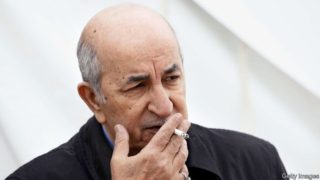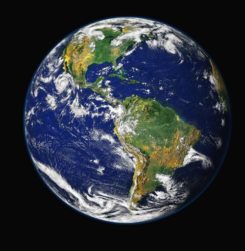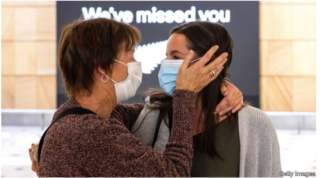After months convalescing abroad, the president insists he is almost healed of covid-19
L
LITTLE IS KNOWN about Abdelmadjid Tebboune’s bout with covid-19. For nearly two months beginning in October, Algeria’s 75-year-old president, a heavy smoker, disappeared from public view after travelling to Germany for treatment. On December 13th, amid swirling rumours about his health, Mr Tebboune’s men posted a proof of life: a five-minute video in which the visibly thinner president pledged to come home soon. At last, on December 29th, he did return, looking as if he had regained the weight. Mr Tebboune is “nearing complete healing”, state media reported, citing a brief statement from the president.
For a man trying to turn the page on the autocratic presidency of his predecessor, Abdelaziz Bouteflika, the omens are not good. The government also concealed the poor health of Mr Bouteflika, a wheelchair-bound octogenarian who suffered at least one stroke while in office. Mass protests toppled him in 2019, but they did not dislodge the old elite. Later that year Mr Tebboune (pictured) was elected in a poll contested by only a handful of regime insiders and shunned by most Algerians. The hirak, the country’s leaderless protest movement, boycotted the vote.
The protesters saw the election as an effort to silence them while changing little. They insist on removing the generals, businessmen and politicians who have long ruled from behind the scenes and siphoned the country’s hydrocarbon wealth. Mr Tebboune, a former prime minister, was widely viewed as the choice of Ahmed Gaid Salah, the army chief. Two weeks after Mr Tebboune’s election, in December 2019, the general suffered a fatal heart attack.
So Mr Tebboune tried to shore up his legitimacy with a constitutional referendum. In November Algerians approved amendments that reinstated presidential term limits and granted new powers to the executive and to parliament. But the turnout (23%) was the lowest in any poll since the country’s independence from France in 1962. The changes did little to assuage the hirak. Protests, suspended in March as covid-19 spread, are likely to resume once the state’s public-health restrictions are lifted. “When life returns to normal there will be a lot of Algerians heading back to the streets,” says Samir Belarabi, an activist.
Critics of the government have good reason to doubt Mr Tebboune’s promise of a “new Algeria”. The constitution pays lip-service to freedom of speech, but the number of political prisoners is rising, say activists. In December prosecutors recommended a five-year prison sentence for Walid Kechida, who started a Facebook group featuring pro-hirak memes. Government censors have banned a growing number of websites. A new law will increase state control over online media by requiring news sites to obtain a licence and be hosted inside the country. Journalists say the government has not been this repressive since the 1990s, when dozens of them were murdered during a bloody civil war.
Yet the biggest threat faced by Mr Tebboune is the crumbling economy. A covid-induced plunge in the global demand for oil has caused Algeria’s revenue from it to fall by a third. In response, the government halved its budget. It has so far not cut the subsidies that make food, housing and fuel cheap, but that may be unavoidable. Foreign reserves have fallen from nearly $200bn in 2014 to about $44bn. Algeria’s dinar lost about 20% against the euro in 2020. unesco has declared the currency a heritage object at risk of disappearing, quipped a satirical news site.
The government’s only plan appears to be to hope for oil prices to rise. Mr Tebboune has pledged not to accept an imf programme, in keeping with the government’s long-held fear of foreign interference. But an increasing number of Algerians are seeking salvation overseas. In the first nine months of 2020, 50% more of them crossed the water to Spain compared with all of 2019, according to unhcr. Winter usually means fewer crossings. But in 2021 many more are likely to risk them.
By The Economist





